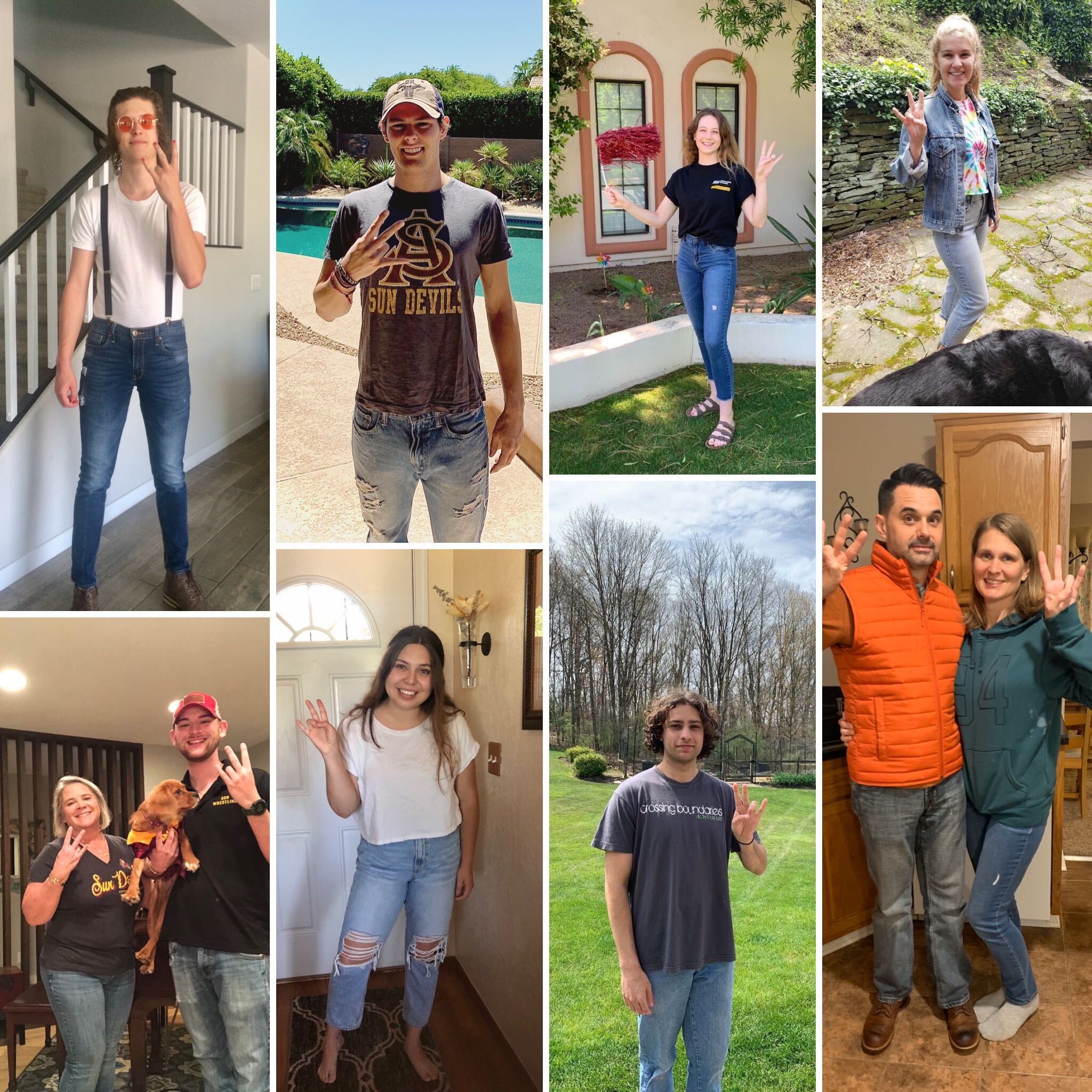ASU dons blue jeans to honor victims and survivors of sexual violence
The content to follow is sensitive in nature and may cause uncomfortable feelings or be triggering.
Please visit sexualviolenceprevention.asu.edu should you wish to connect with university or community resources.
In 1992, an 18-year-old woman in Rome, Italy, was taking a driving lesson when her instructor sexually assaulted her. The man was convicted for the crime and sent to jail, but the Italian Supreme court overturned the ruling, claiming the victim’s jeans were tight and that she must have removed them herself, deeming the interaction consensual.
In response, women of the Italian parliament staged a protest by wearing denim jeans to work. The news quickly spread to the California Senate and Assembly, where leaders protested in a similar fashion. The first official Denim Day, which occurs every year in April, was in 1999 and has spurred an organized and impassioned movement that brings awareness and action to sexual abuse and victim blaming while wearing jeans in support of survivors.
ASU’s Denim Day event, organized by the Sun Devil Movement for Violence Prevention, invited university clubs and organizations to join the international community in support of survivors of sexual violence and to put an end to victim blaming. The event, part of ASU’s Virtual Sexual Assault Awareness Month, invited ASU students, faculty and staff to post pictures of themselves wearing denim on social media. Student groups such as the Programming and Activities Board, 942 Crew, TRIO Upward Bound, sororities and fraternities and more participated.

ASU Student Life reporters celebrate Denim Day 2020
Cheyanne Kratz, marketing and communications peer educator for the Sexual and Relationship Violence Prevention Program, said it was important to participate in Denim Day because it’s a national event and an opportunity to inform students of the variety of resources available through MVP and other organizations at ASU, such as the Sun Devil Support Network.
The network is made up of students who are trained to support survivors of sexual assault. Kratz said while the students are mandatory reporters, it can be a more comfortable experience for survivors to have peers to turn to. SDSN matches advisors with students based on information such as year and major.
“You’re not talking to someone who is far from the experience like a police officer. You’re talking to someone who is in our community,” said Kratz, a junior studying nonprofit leadership and management at the ASU Lodestar Center for Philanthropy and Nonprofit Education.
Antoinette Perry, the vice president of communications for ASU’s Alpha Omicron Pi, said participating in Denim Day is an integral part of the sorority’s process for informing their members on practices to prevent and discuss sexual violence.
“It is important for our chapter to have an environment where our sisters feel they can confide in one another with important personal issues, especially those involving sexual assault and relational violence,” Perry said. “We worked together to participate in Denim Day to spread the word that we believe in our survivors and to show our sisters and community furthermore that we are here to listen and help.”
Kratz also offered advice to students on how to listen and be available for a friend or peer sharing a traumatic experience.
“We work with prevention and want to stop the problem, but we also want to prepare people for when the problem happens,” Kratz said. “The best advice is listening to what they say and what they want to do. We often tell people to listen, stand with them and believe with them. It’s so easy to say, ‘Well, you need to report this.’ But you don’t want to pressure someone after they’ve been through a traumatic experience. You want them to be in control and have their voice. Being supportive and listening is the best thing to do.”
For Kratz and the Movement for Violence Prevention, coordinating events and educating virtually has been different. Yet, they’ve still been successful in reaching people in the community — they reached 1,100 Instagram users on Denim Day alone — and are looking forward to engaging more with the students during the summer and fall semesters.
“We wanted to be light-hearted with a serious issue,” Kratz said. “It’s sometimes hard, but I think we did a really good job, and it led us to experimenting more with sexual violence prevention education on an online platform.”